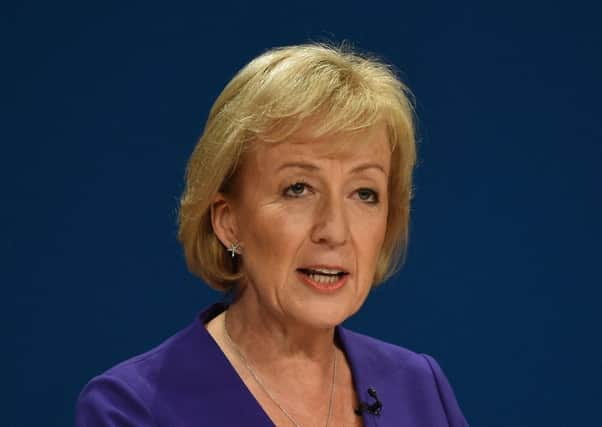Andrea Leadsom set for clash with Holyrood over Brexit
This article contains affiliate links. We may earn a small commission on items purchased through this article, but that does not affect our editorial judgement.


When UK secretary of state Andrea Leadsom unveiled the meeting earlier this week at the annual meeting of the English NFU, she also revealed her policy priorities.
These include her determination to decide matters on a UK level – which will conflict with the Scottish Government’s preference to leave devolved matters such as agriculture to be decided in Scotland.
Advertisement
Hide AdAdvertisement
Hide AdShe also said she wanted to increase overseas trade in farm produce. She believed that, with 60 per cent of the UK’s exports going to EU countries, this relationship would not change and she promised she would fight for tariff-free trading with Europe.
The issue of sorting out trade deals post-Brexit was taken up by another speaker at the meeting. Ian Wright, director general of the Food & Drink Federation, said he did not believe a deal could be struck with the EU within the two-year window allowed after signing Article 50.
A transitional trade deal between the EU and UK was “absolutely vital” for the food and farming sector, he said, adding: “It is important that ministers get the transition deal right before they start worrying about the free trade agreement.”
Union president Meurig Raymond had earlier called on the UK government to remove much of the uncertainty surrounding exiting the EU. As a priority, he said it was essential to keep existing trades routes in Europe as part of the transition to wider markets.
Leadsom also stressed the importance of the UK holding on to its current animal health and welfare standards saying this was one of the most compelling reasons for customers buying British food – and rejected a suggestion that imports from countries with lower health and welfare standards could be allowed.
She also highlighted the need for the farming industry to be incentivised to work alongside environmental objectives, with farmers getting a fair return for their food while supporting the local environment. On this, she was critical of the current common agricultural policy’s environmental policies which she described as being full of unnecessary bureaucracy.
On the use of migrant labour in agriculture, the minister accepted this played a vital role in the industry but she added “we must control immigration”.
Advertisement
Hide AdAdvertisement
Hide AdOne of Raymond’s demands was the industry needed access to “a competent and reliable workforce”.
“Farming is reliant on being able to recruit both a permanent and seasonal workforce and we have a very serious challenge right now,” he said.
“The horticulture and poultry sectors – which are reliant on seasonal temporary workers – are already struggling to recruit up to 95,000 needed by 2021.
“We urge the cabinet to work with us to sort this out as a matter of urgency. British food production depends on it. In fact, the whole food chain depends on it.”
